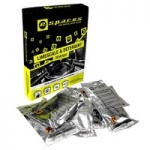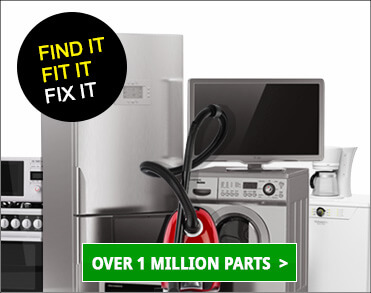
How to stop limescale from ruining your appliances
July 19, 2016 | Cleaning Tips | No comments
Just a heads up, we’re about to talk a lot about something that 6 out of 10 of you most likely dread: limescale. 60% of homes across the UK have hard water so we’re no strangers in this country to the hard, off-white build up that plagues our appliances.
If you have hard water in your area you need to know how it affects your appliances and how to tackle this pesky limescale before it’s too late! (If you’re not sure how hard your water is, use our handy postcode checker to find out.)
What is limescale?
Here’s a little lesson to take you back to your school days…

Minerals in hard water aren’t harmful, they’re actually good for your health, but when heated they react and harden. Hence the hard, scaly deposits on your shower head, in pipes and in on the heating elements of appliances around your home.
You can see the limescale build up on some elements like the one in your kettle, but others like washing machine elements are hidden. Don’t let these elements be out of sight, out of mind. If too much limescale builds up in them, they’ll fail and need replacing.
Here’s our neat little summary of the differences between hard and soft water:

| Benefits of Hard Water
– Contains magnesium, iron and calcium minerals which are good for health – Some people prefer the taste Disadvantages of Hard Water – Limescale which if not tackled can block pipes and reduce the life of appliances |
Benefits of Soft Water
– No limescale build-up on appliances – Need to use less detergent – Appliances last longer Disadvantages of Soft Water – Detergent can be hard to rinse off – Pipes can wear away over time |
Which Appliances Does It Affect?
Limescale can build up on any appliance that heats water including your:

- Washing machine
- Dishwasher
- Kettle
- Coffee machine
- Steam cleaners
- Steam irons
How to Treat It
If you’re starting to worry about the state of your elements, rest assured that it’s quite easy to keep them limescale free. You just have to be vigilant about regularly cleaning them with dedicated limescale cleaner. Once a month should do the trick.
For dishwashers and washing machines, our specialist cleaner works wonders on limescale. It cleans smelly washing machines in soft water areas that suffer from detergent and mould build-up too. Of course, we would say that, but take a look at our customers’ comments if you don’t want to take our word for it! Whichever limescale remover you go for, we recommend using it twice if you’ve never de-scaled your appliance before.Want more choice? Variety is the spice of life so take a look at what’s on offer to rid your appliances of limescale and keep them working for longer. One less issue in your home to worry about!
Tags: Appliance Care, Limescale


